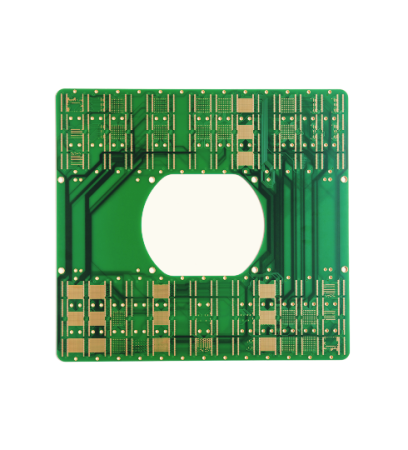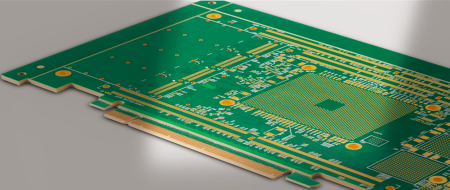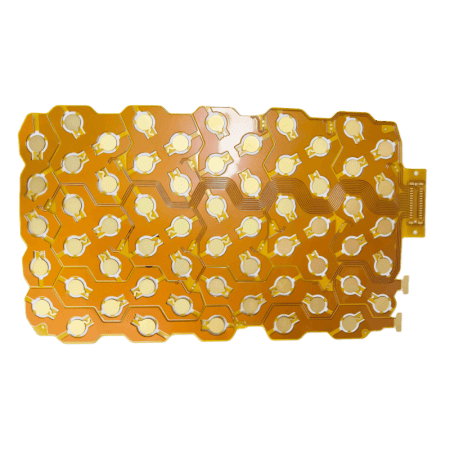- +86-755-23012705
- Building 3, Jinfeng Industrial Park, Fuyong Street, Baoan District, Shenzhen ,China
- [email protected]
In the ever-evolving world of electronics manufacturing, the demand for faster, more accurate, and cost-effective production processes is stronger than ever. Printed Circuit Board Assembly (PCBA) is a critical part of electronic device manufacturing, and its efficiency and precision directly impact the quality of the final product. To meet the growing demands of industries such as automotive, telecommunications, and consumer electronics, manufacturers are increasingly turning to automation technology. This blog explores how automation enhances both the efficiency and precision of PCBA production, driving advancements in the industry.
Efficiency is a key factor in ensuring that PCBA production meets the fast-paced demands of the modern electronics market. Automation plays a crucial role in increasing production speed while reducing labor costs and minimizing human error. Automated systems allow manufacturers to run production lines continuously, 24/7, without the need for breaks or shift changes, which is impossible in manual labor-based processes.
One of the most prominent applications of automation in PCBA production is the pick-and-place process. These machines are designed to automatically place thousands of tiny electronic components onto a printed circuit board with high speed and accuracy. Automated pick-and-place systems can perform this task much faster than human operators, significantly speeding up production. Moreover, these systems can handle components with high precision, even when dealing with micro-sized parts, which would be challenging or time-consuming for human workers.

Additionally, automated soldering systems like selective soldering robots and wave soldering machines can process multiple boards at once, greatly improving throughput. Unlike manual soldering, which requires individual attention and a slower pace, automated soldering machines can apply precise amounts of solder in a fraction of the time, ensuring that solder joints are consistently strong and uniform.
Another benefit of automation is streamlined material handling. With automated conveyor belts, material storage systems, and robotic arms for loading and unloading components, manufacturers can manage their supply chains more efficiently. Automation reduces the time spent on manual handling, minimizes the risk of parts being misplaced or damaged, and ensures that materials flow smoothly through the production process.
Precision is a critical aspect of PCBA production, especially when dealing with complex and densely populated circuit boards. Even minor errors in component placement or soldering can lead to malfunctions in the final product, potentially resulting in costly recalls or repairs. Automation significantly improves precision, ensuring that each component is placed in exactly the right location and that solder joints are perfectly formed.
Automated Optical Inspection (AOI) and X-ray inspection are two key technologies used in automated systems for quality control. AOI systems use high-resolution cameras and advanced software to capture detailed images of each PCB, comparing them against a set of predefined criteria. This allows for the identification of defects such as misaligned components, soldering issues, or missing parts before they progress further down the production line. AOI helps catch defects early, preventing defective products from reaching the end customer and ensuring high-quality output.
Similarly, X-ray inspection is invaluable for checking solder joints in areas that are difficult to reach, such as under-ball grid arrays (BGAs). X-ray systems provide a non-destructive way to detect soldering issues like cold solder joints or incomplete connections, which may not be visible to the human eye. By utilizing these automated inspection systems, manufacturers can maintain high standards of quality and minimize the risk of product failure in the field.
Automation also plays a key role in the consistency of production. Unlike manual labor, which can be subject to fatigue or error, automated systems can consistently perform the same task with high precision. This is particularly important when producing high-volume orders or complex products that require uniformity across all units. Automated systems are programmed to perform tasks with millimeter-level accuracy, ensuring that every board meets the required specifications.

Automation doesn’t just stop at production—intelligent systems can also optimize the entire manufacturing process. Through real-time monitoring and data analytics, manufacturers can continuously track performance, identify potential bottlenecks, and fine-tune production lines for optimal efficiency.
Automated monitoring systems collect data from various stages of the production process, such as component placement, soldering, and inspection. This data can be analyzed to detect inefficiencies or deviations from the optimal workflow. For example, if a soldering machine is operating at a slower pace than usual, the system can flag the issue and alert operators to take corrective action. This real-time feedback loop helps to prevent delays and ensure that production goals are consistently met.
Predictive maintenance is another benefit of automation in PCBA production. By analyzing machine performance data, manufacturers can predict when a piece of equipment is likely to fail, allowing for preventive maintenance before a breakdown occurs. This reduces unplanned downtime, lowers repair costs, and extends the lifespan of machines.
One of the most powerful aspects of automation is its ability to scale production without sacrificing quality. Whether it’s a small batch of prototype boards or a high-volume production run, automated systems can easily adjust to varying production needs. This flexibility is crucial in today’s electronics market, where product lifecycles are shorter and demand can fluctuate rapidly.
Automated production lines can be reconfigured quickly to handle different designs or sizes of PCBs, ensuring that manufacturers can respond to changing customer demands without significant delays or retooling costs.

Automation technology has revolutionized the way PCBA production is carried out, offering significant improvements in both efficiency and precision. Through the use of robotic systems, automated assembly lines, advanced inspection tools, and real-time monitoring, manufacturers can streamline production, reduce costs, and maintain the high standards of quality that are essential in today’s competitive electronics market.
As automation continues to evolve, its role in PCBA production will only grow. Companies that embrace automation will not only enhance their production capabilities but also be better positioned to meet the demands of an increasingly dynamic and technology-driven industry. Whether it’s achieving faster turnaround times, ensuring better product quality, or adapting to new market demands, automation is the key to driving the future of PCBA manufacturing.
Simplify Your PCB Journey with XPCB Limited
XPCB Limited simplifies the PCB process for you. With our quick-turnaround prototyping and turnkey PCBA services, we ensure that your projects move forward smoothly and efficiently. Trust our commitment to quality and timeliness as we help you bring your designs to life. Choose XPCB Limited for a hassle-free PCB experience.






XPCB Limited is a premium PCB & PCBA manufacturer based in China.
We specialize in multilayer flexible circuits, rigid-flex PCB, HDI PCB, and Rogers PCB.
Quick-turn PCB prototyping is our specialty. Demanding project is our advantage.
Tel : +86-136-3163-3671
Fax : +86-755-2301 2705
Email : [email protected]
© 2024 - XPCB Limited All Right Reserve
